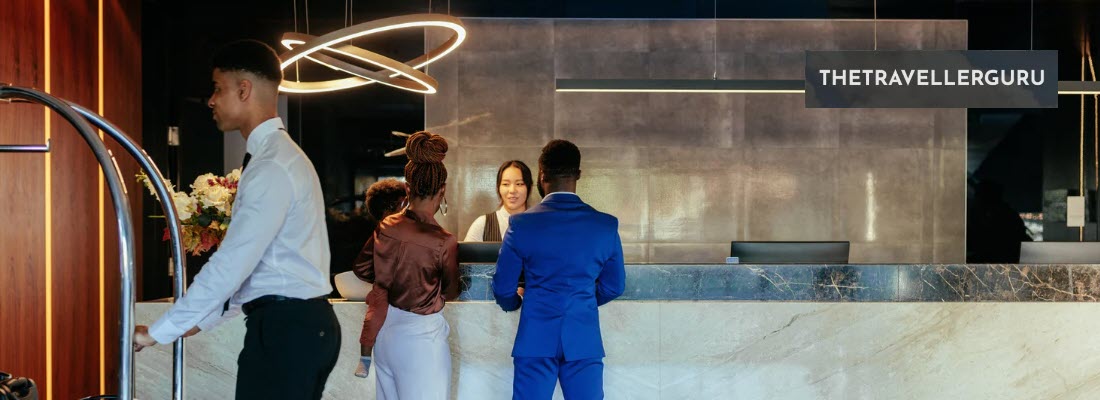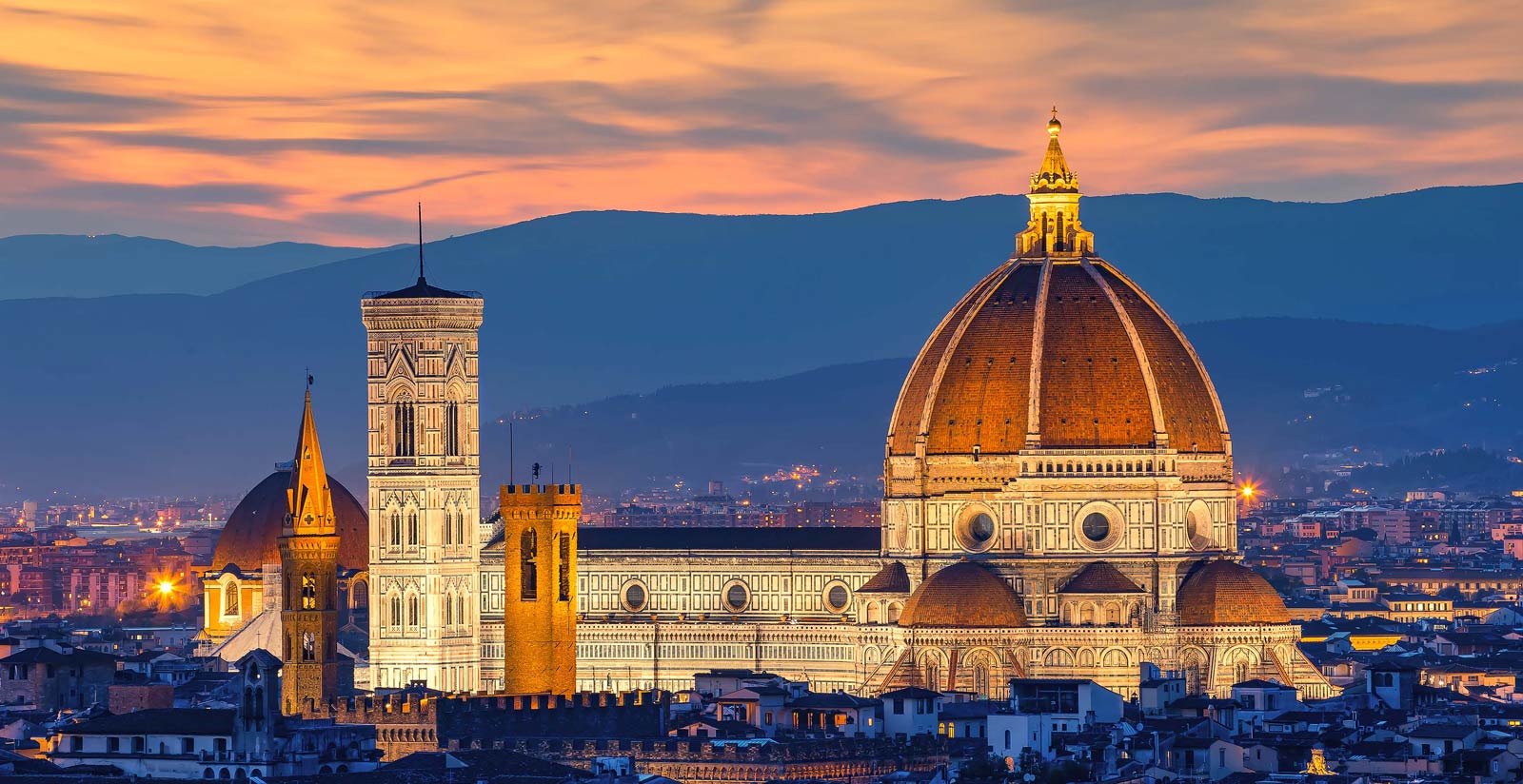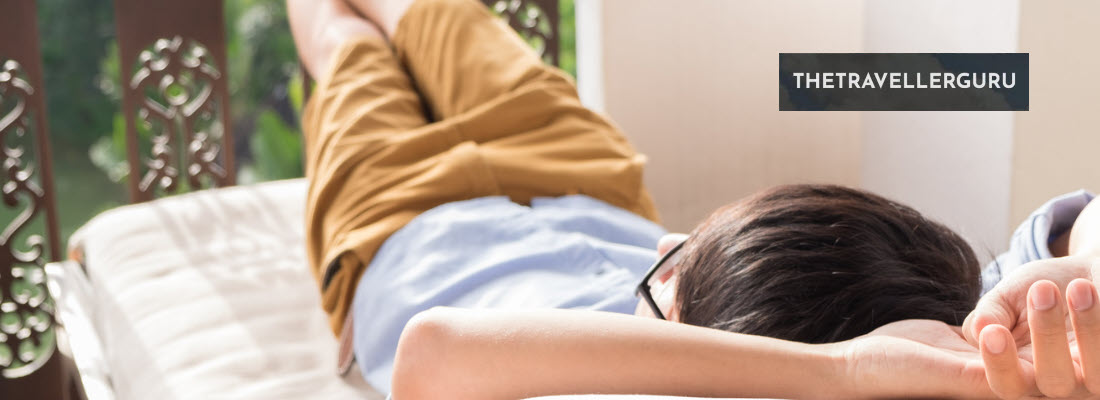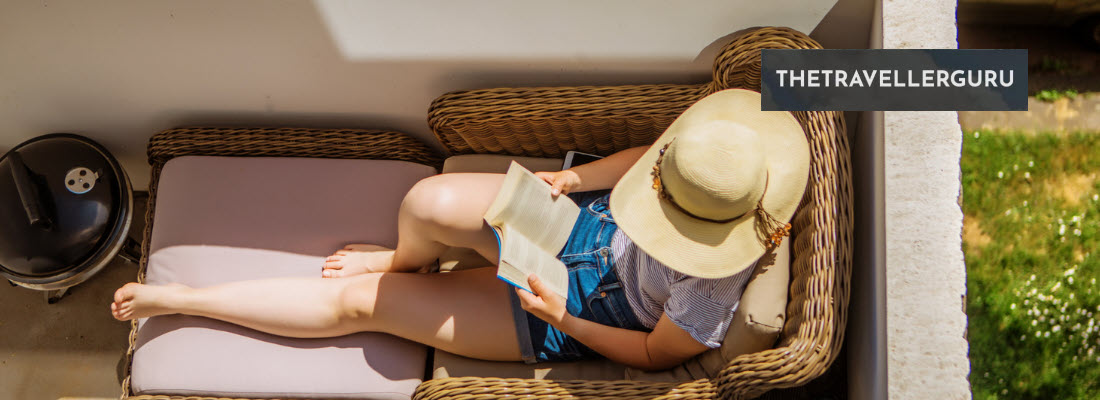Hey there my fellow travel enthusiasts and welcome to my post where we will discuss the ins and outs of backpacking vs flashpacking. When it comes to travel, there are many different ways to explore the world.
Two popular styles of travel are backpacking and flashpacking. While both involve exploring new places and experiencing new cultures, each style has its own unique characteristics and advantages. Backpacking is often associated with budget travel and a more adventurous spirit. On the other hand, flashpacking is a newer trend that bridges the gap between budget travel and luxury travel.
Backpacking vs Flashpacking: Definitions
Way back when when I backpacked around Europe with my girlfriend (now wife), we noticed even then that there was two different types of ‘backpackers’ – those traveling on an absolute shoestring budget, and those with just a little more disposable cash to spend.
Now of course as with most other things, a new name has been created for the latter – flashpacking. So now when it comes to traveling for a longer period of time, there are a couple of different ways to do it – backpacking and flashpacking.
Here’s a photo of us in a café in Paris during our backpacking days – look how young we were… haha
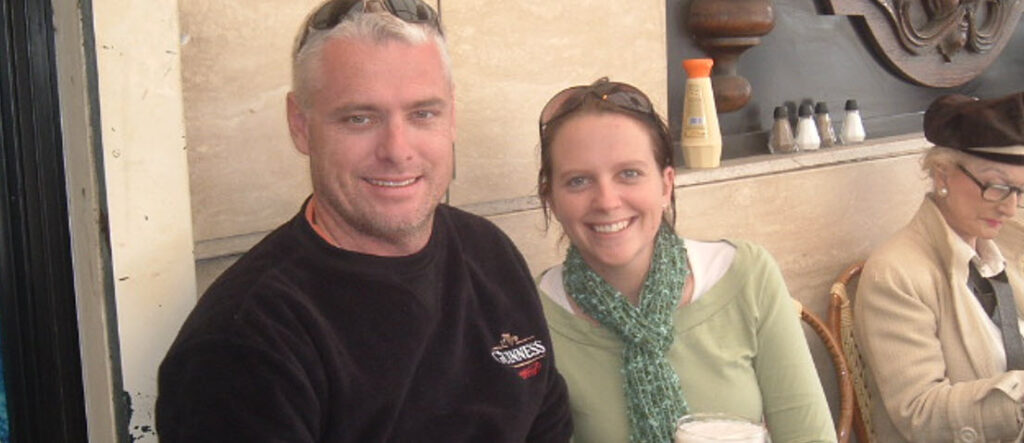
Here’s a breakdown of what each one means:
What is Backpacking?
Backpacking is a form of budget travel that involves carrying all your belongings in a backpack and staying in budget accommodations such as hostels or camping. Backpackers often travel for extended periods of time and their itinerary is usually flexible and open-ended.
This style of travel is popular among younger people who are willing to rough it and prioritize experiences over comfort. They tend to prioritize experiences over luxury and are willing to rough it in order to save money.
Check out these: Tips for Backpackers
Origins of Backpacking
Backpacking originated in the early 20th century when people started exploring the outdoors for leisure purposes. Backpackers would carry their necessary belongings in a backpack and venture into the wilderness for days or weeks. This style of travel was initially associated with budget travel and was popular among young people who wanted to explore different cultures and places.
Over time, backpacking became more mainstream and evolved into a form of travel that was not just limited to the wilderness but included cities, beaches and other destinations. Backpackers still carried their belongings in a backpack, but the style of travel became more organized and structured.
Check out these: Best Framed Backpacks for Travel
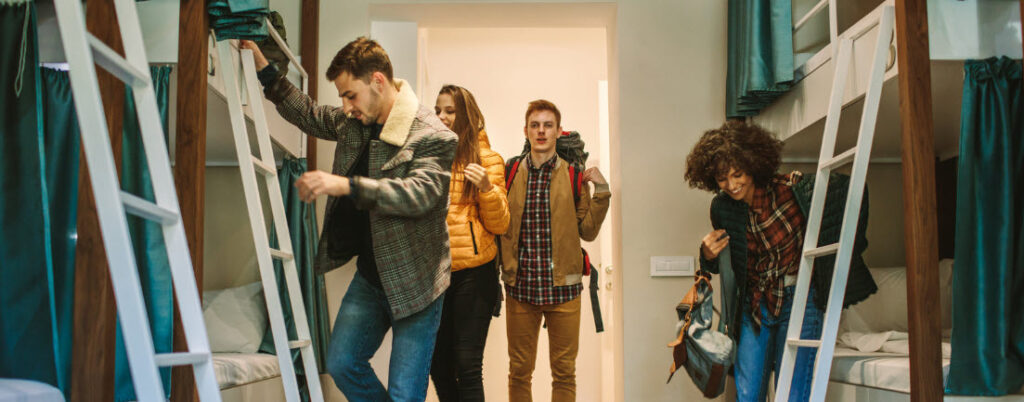
What is Flashpacking
Flashpacking is a more upscale version of backpacking. It involves traveling with a backpack, but staying in more luxurious accommodations such as boutique hotels or private apartments. Flashpackers tend to have a higher budget than backpackers, and they may splurge on experiences such as fine dining or adventure activities.
They still prioritize experiences over material possessions, but they are willing to spend more money to get them. This style of travel is often associated with older travelers who want to explore the world in comfort and style.
Check out these: Tips for Flashpackers
Rise of Flashpacking
Flashpacking is a relatively new term that emerged in the early 2000s. It is a more luxurious form of backpacking that involves carrying a backpack but with more money to spend on accommodation, food and transportation. Flashpackers typically travel for longer periods and visit more exotic and far-flung destinations.
The rise of flashpacking can be attributed to the changing demographics of backpackers. As backpacking became more mainstream, it attracted older travelers with more disposable income who wanted to experience the adventure and freedom of backpacking but with more comfort and convenience.
Budget Considerations
So now that we know the main differences between the two, what about the costs?
Cost of Backpacking
When it comes to backpacking, it is generally considered to be a budget-friendly way of traveling. This is because backpackers tend to stay in hostels, cook their own meals and use public transportation to get around. In addition, backpackers tend to be more flexible with their travel plans, which allows them to take advantage of cheaper flights and accommodations.
However, the cost of backpacking can vary depending on the destination and the duration of your trip. For example, backpacking in Southeast Asia can cost as little as $20 per day, while backpacking in Europe can cost upwards of $50 per day.
Cost of Flashpacking
On the other hand, flashpacking is generally considered to be a more expensive way of traveling. This is because flashpackers tend to stay in nicer accommodations, eat at restaurants and use taxis or private transportation to get around.
In addition, flashpackers tend to be more rigid with their travel plans, which can limit their ability to take advantage of cheaper flights and accommodations.
However, the cost of flashpacking can also vary depending on the destination and the duration of your trip. For example, flashpacking in Southeast Asia can cost upwards of $50 per day, while flashpacking in Europe can cost upwards of $100 per day.
A the end of the day, whether you choose to backpack or flashpack largely depends on your budget and travel preferences. Backpacking is generally a more budget-friendly option, while flashpacking is a more luxurious option. However, it is important to keep in mind that the cost of both options can vary depending on the destination and the duration of your trip.
Gear and Packing Essentials
So, regardless of what type of ‘packing’ you tend to do, here are some good gear essential options to think about:
Backpacking Gear List
When it comes to backpacking, packing light is key. You’ll want to bring only the essentials, as you’ll be carrying everything on your back. A good backpack is crucial, make sure it fits well and is comfortable to wear for long periods of time.
You’ll also want to invest in a quality pair of hiking boots and socks to ensure your feet stay comfortable and dry. A sleeping bag, tent and camping stove are also important items to bring along.
Here’s a list of some backpacking essentials you’ll want to consider packing:
- Backpack
- Hiking boots
- Socks
- Sleeping bag
- Tent
- Camping stove
- Water filter or purification tablets
- First aid kit
- Headlamp or flashlight
- Map and compass
- Multi-tool or knife
- Sunscreen and insect repellent
- Lightweight, quick-drying towels and clothing
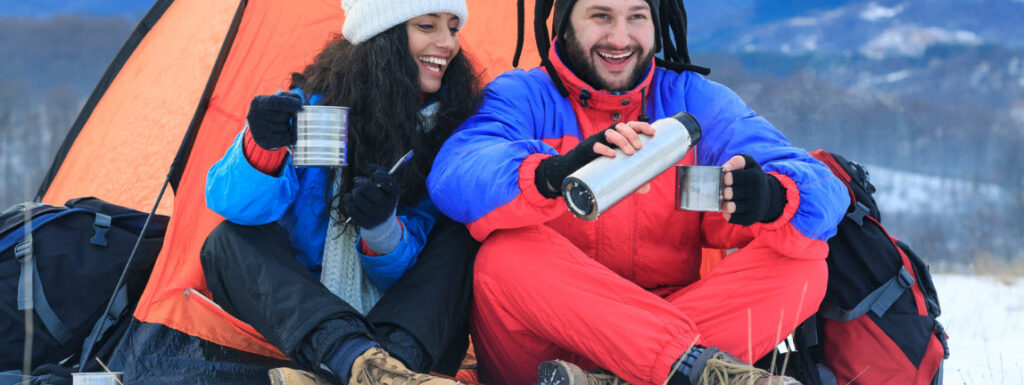
Flashpacking Must-Haves
Flashpacking is a step up from backpacking, and as such, you’ll want to bring along a few more comforts. You’ll likely be staying in hostels or budget hotels so you won’t need to bring a tent or camping stove. Instead, focus on bringing items that will make your travels more comfortable and enjoyable.
Here are some flashpacking must-haves to consider packing:
- Quality luggage or backpack with wheels
- Comfortable walking shoes
- Smartphones, tablets or laptops for entertainment
- Camera for capturing memories
- Noise-cancelling headphones
- Portable charger
- Travel pillow and blanket
- Toiletries and skincare products
- Clothing appropriate for the climate and activities
- Travel insurance
Remember, whether you’re backpacking or flashpacking, the key is to pack light and bring only what you need. Don’t forget to research your destination and pack accordingly. With the right gear and packing essentials, you’ll be ready for any adventure that comes your way.
Accommodations
We have touched on this above, but let’s now look at this in a little more details:
Backpacking Accommodations
When it comes to backpacking, accommodation options are often limited to budget hostels, camping or staying with locals through platforms like Couchsurfing. Hostels are usually the most popular choice among backpackers due to their affordability and social atmosphere.
However, the quality of hostels can vary greatly and you may need to share a room with strangers. Camping is a great option for those who enjoy the outdoors, but it requires more equipment and planning. Staying with locals through Couchsurfing can be a unique and authentic experience, but it requires more effort to find hosts and may not be suitable for everyone.
Flashpacking Accommodations
Flashpackers may also opt for higher-end accommodations, such as boutique hotels or luxury resorts. These accommodations often come with more amenities and services, but they also come with a higher price tag. However, flashpackers can still save money by using travel rewards programs or booking in advance.
It’s important to note that both backpacking and flashpacking have their own advantages and disadvantages when it comes to accommodation and transportation. It ultimately depends on your personal preferences, budget and travel style. Regardless of which option you choose, it’s important to be flexible and open-minded to new experiences and challenges that may arise during your travels.
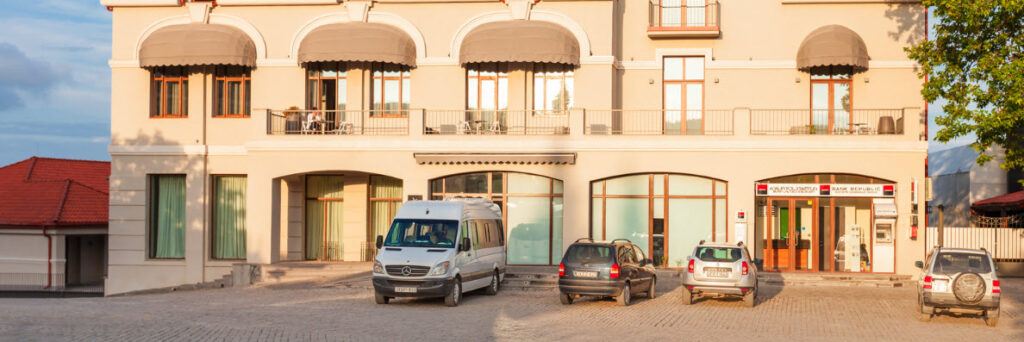
Cultural and Social Experiences
When it comes to cultural and social experiences, both backpacking and flashpacking offer unique opportunities.
Backpacking Immersion
Backpacking is often associated with a more immersive experience, as travelers tend to stay in hostels and interact with locals and other travelers. This type of accommodation fosters a community atmosphere, and many backpackers choose to participate in volunteer work or cultural exchanges to further immerse themselves in the local culture.
Backpackers also tend to spend more time in a single location, allowing them to fully explore and appreciate the local customs, traditions and way of life. This type of travel often requires a certain level of flexibility and adaptability, as plans can change at a moment’s notice.
Flashpacking Connectivity
On the other hand, flashpacking offers a different type of cultural and social experience. While flashpackers may not stay in hostels, they often choose boutique hotels or bed and breakfasts that offer a more personalized experience.
Flashpackers also tend to be more connected to the outside world, as they often bring along their electronic devices and stay in accommodations with reliable Wi-Fi. This allows them to stay in touch with friends and family back home, as well as share their experiences on social media.
While flashpackers may not have the same level of immersion as backpackers, they often have more disposable income to spend on cultural experiences such as tours, local cuisine and other activities instead.
Travel Duration and Flexibility
How long you plan to be away can definitely have an effect on the style of travel that you undertake as follows:
Backpacking Longevity
When it comes to backpacking, the duration of your trip can vary greatly. Many backpackers choose to travel for an extended period of time, often for months or even years at a time. This extended trip duration allows for a more immersive travel experience, as you have the time to fully explore each destination and get to know the local culture.
Backpacking also offers a great deal of flexibility in terms of travel duration. Since you are not tied to a specific itinerary, you can choose to stay in one place longer or move on to the next destination more quickly, depending on your preferences.
Flashpacking Trip Length
Flashpacking, on the other hand, tends to be more focused on shorter trips. While flashpackers may still travel for several weeks or even a few months, it is less common to see flashpackers traveling for extended periods of time.
One reason for this is that flashpacking tends to be more expensive than backpacking, so it may not be feasible for everyone to take an extended trip. Additionally, flashpacking often involves more luxurious accommodations and activities, which can be more expensive and therefore limit the duration of the trip.
Pros and Cons
Pros of Backpacking:
- Cost-Effective: Backpacking is generally more budget-friendly than traditional forms of travel. Staying in hostels, using public transport and cooking your own food helps save money.
- Flexibility: Backpackers often don’t have a fixed itinerary, allowing for spontaneous decisions and changes in plans based on new opportunities or recommendations.
- Cultural Immersion: Backpacking facilitates closer interaction with local people and cultures, offering a more authentic experience than typical tourist activities.
- Adventure and Discovery: It encourages exploration of less-traveled paths, leading to unique experiences and stories.
- Personal Growth: Overcoming challenges and adapting to new environments can lead to significant personal development and increased self-confidence.
- Simplicity and Minimalism: Traveling with only what you can carry encourages a simpler, more minimalist lifestyle, focusing on experiences rather than possessions.
Cons of Backpacking:
- Physical Strain: Carrying a backpack and moving frequently can be physically demanding, especially over long periods.
- Security Risks: Backpackers can be more vulnerable to theft or scams, particularly in unfamiliar environments.
- Lack of Comfort: Budget accommodations and transport can be less comfortable and offer fewer amenities than more expensive options.
- Uncertainty and Stress: The lack of a fixed itinerary can sometimes lead to stressful situations, such as finding accommodation last minute or dealing with unexpected challenges.
- Health Risks: Exposure to different environments and less access to healthcare can increase health risks.
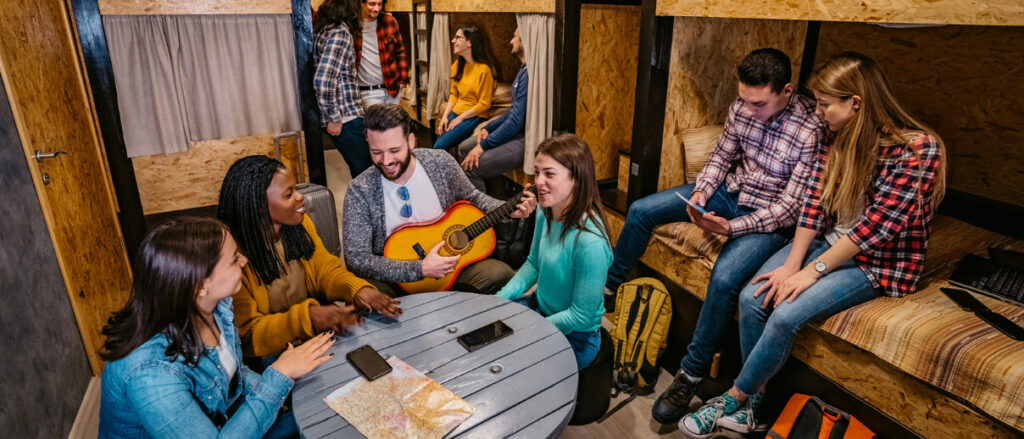
Pros of Flashpacking:
- Comfort and Convenience: Flashpackers enjoy more comfortable accommodations and travel options compared to traditional backpacking. This might include staying in boutique hostels or budget hotels with better amenities.
- Technological Connectivity: Flashpackers typically carry gadgets like smartphones, laptops or cameras, staying connected and able to share their experiences in real-time or work remotely.
- Flexibility: Like backpacking, flashpacking offers the flexibility to change plans and itineraries, but with the added comfort of more resources and better planning tools.
- Cultural Immersion with Comfort: Flashpackers can still enjoy immersive cultural experiences but return to more comfortable accommodations at the end of the day.
- Broader Range of Experiences: With a slightly higher budget, flashpackers can partake in activities or visit places that might be inaccessible to budget backpackers.
- Personal Safety: Staying in slightly more secure accommodations and having access to reliable communication tools can enhance personal safety.
Cons of Flashpacking:
- Higher Costs: Flashpacking is more expensive than traditional backpacking due to the costs of better accommodations, transportation, and technology.
- Less Authentic Backpacking Experience: Some might argue that the added comfort and technology detract from the raw, authentic experience traditionally associated with backpacking.
- Dependency on Technology: Heavy reliance on gadgets can sometimes detract from the travel experience and lead to challenges if technology fails.
- Security Risks for Valuables: Carrying expensive gadgets increases the risk of theft or damage.
- Potential Isolation: The use of technology can sometimes isolate travelers from their surroundings and local interactions.
Backpacking vs Flashpacking – Which is Best?
When it all boils down, the choice between backpacking and flashpacking hinges on personal preferences and priorities in travel. Backpacking appeals to those seeking a cost-effective, authentic and adventurous experience, embracing minimalism and the challenges that come with a nomadic lifestyle making it ideal for travelers who are willing to forego comfort for the sake of immersive cultural experiences and personal growth.
On the other hand, flashpacking caters to those who desire a balance between adventure and comfort, blending the flexibility and cultural immersion of backpacking with the added benefits of technology, better accommodation and a slightly higher budget. It’s particularly suitable for those who wish to stay connected, whether for work or sharing their journey, and prefer not to compromise on comfort and safety.
Ultimately, both styles offer unique experiences and opportunities for discovery and the choice largely depends on what the traveler values most in their journey.
FAQs
What distinguishes a flashpacker hostel from a traditional backpacker hostel?
Flashpacker hostels are often more upscale than traditional backpacker hostels. They offer private rooms, en-suite bathrooms and more amenities like Wi-Fi, air conditioning and laundry facilities. Flashpacker hostels also tend to be more expensive than traditional backpacker hostels.
What are the main differences between a flashpacker and a backpacker in terms of travel style and budget?
Flashpackers tend to have more money to spend on their travels and are willing to pay more for comfort and convenience. They may also be older and more experienced travelers. Backpackers, on the other hand, are often younger and more budget-conscious. They may be willing to sacrifice some comfort in exchange for a more authentic travel experience.
Conclusion
There you have it; my take on the Backpacking vs Flashpacking debate. As usual, let me know of your experiences here or if there is anything you think I need to add. Also I would love to hear why you would choose one city over the other as well.
Also, please do not hesitate to comment below if you have any questions, concerns, or corrections or would like me to check anything else out for you.
Until next time.
Have fun
Paul

